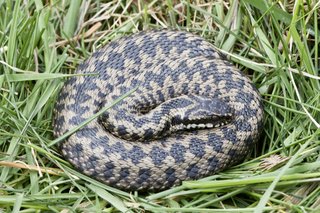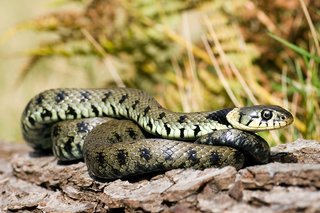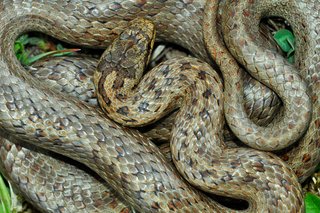Most snake bites in the UK are not serious. But it's important to get all snake bites checked as soon as possible.
Immediate action required: Call 999 or go to A&E immediately if:
- you think you, or someone else, has been bitten by a snake
If you're not in the UK when you are bitten by a snake, contact the emergency medical services in the country you're in.
Visit GOV.UK for foreign travel advice.
What to do while you're waiting for help
Do
- stay calm, most snake bites in the UK are not serious and can be treated
- keep the part of your body that was bitten as still as you can
- lie in the recovery position if you can
- take paracetamol for any pain
- try to remember the colour and pattern of the snake to tell the doctor
- take off any jewellery and loosen clothes near the bite, in case it swells
Don't
- do not go near the snake, or try to catch or kill it
- do not try to suck or cut the venom out of the bite
- do not tie anything tightly round the part of the body where the bite is
- do not take aspirin or ibuprofen, as they can make bleeding worse
What happens at the hospital
You will usually need to stay in hospital for at least 24 hours if you have been bitten by a snake.
The bite will be cleaned and bandaged. You may be given an injection to help protect you from tetanus.
If you were bitten by a poisonous snake you will be treated with a medicine to fight the poison. This is given through a thin tube into a vein, called a drip.
Types of UK snake
Only 3 types of snake are found in the wild in the UK.
The adder is the only poisonous snake, but you should get all snake bites checked as soon as possible.
Telling the doctors the colour and pattern of the snake that bit you could help them treat it.

GUSTOIMAGES/SCIENCE PHOTO LIBRARY

JOHN DEVRIES / SCIENCE PHOTO LIBRARY

Credit COLIN VARNDELL / SCIENCE PHOTO LIBRARY
Page last reviewed: 23 December 2019
Next review due: 23 December 2022
